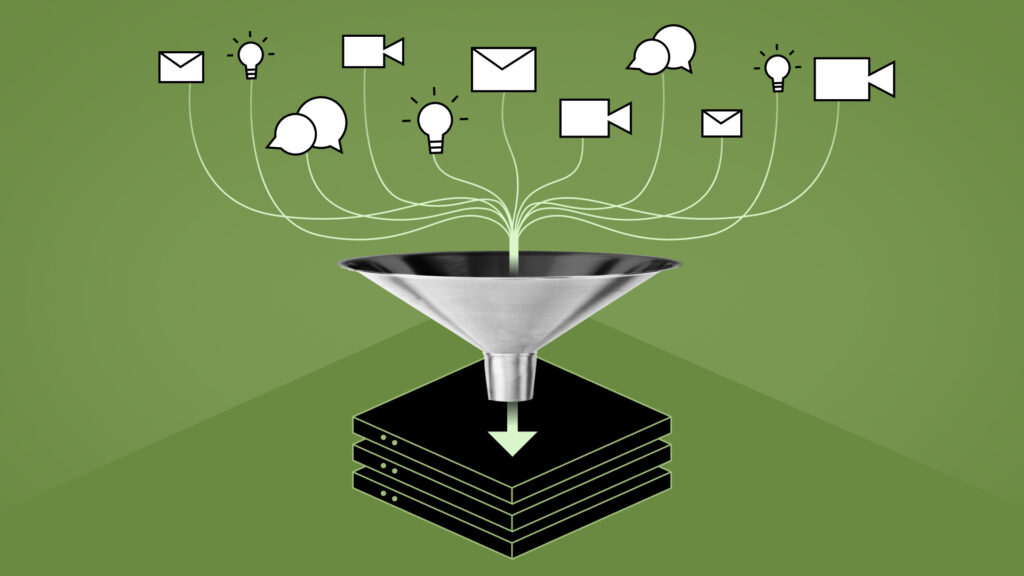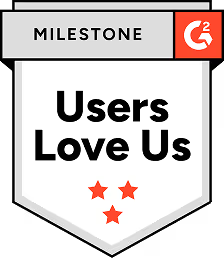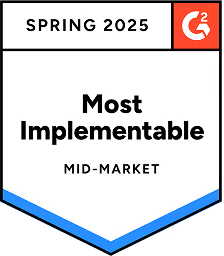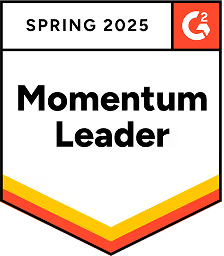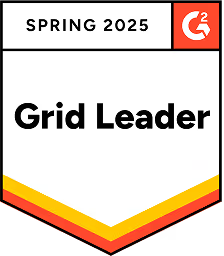Srinath Sridhar on the AI Revolution
.png)
For many marketers and sales pros in B2B businesses, Artificial Intelligence (AI) presents a challenge that can sometimes seem insurmountable: how do you remain adaptive when AI is revolutionizing the workplace, transforming how decisions are made and redefining the way people think?
I recently sat down with Regie.ai Co-founder and CEO, Srinath Sridhar, for a chat where we talked about a more humanistic approach to leveraging AI in the business world. We dive into his vision of AI as a teammate not a replacement.
Read on to hear some of his responses featuring real-life examples of how AI is automating routine tasks for sales teams, freeing up human creativity as a result and reshaping the workplace for the better.
Q: Let’s start with the idea behind this conversation: Do you think technology can take on more tasks that were traditionally done by humans?
I mean that is the essence of what technology is. It solves problems, but often, creates new problems as a result. That is what fuels technological innovation.
The cotton gin separates the fibers from the seeds faster than people. The printing press creates written documents faster than monks were able to copy them.
The story of humanity is that of technology progressively taking on tasks traditionally done by humans, and this trend is accelerating with advancements in artificial intelligence, SaaS and widespread availability of application level APIs to access information within those systems.
Q: As the CEO of a Generative AI tech company, can you give us your philosophy on where you see technology continuing to revolutionize the way we work?
Generative AI is already revolutionizing the way we work by automating routine tasks, providing deep insights from data, and enabling more personalized customer experiences. However, the journey is just beginning.
Take the democratization of creativity and innovation for instance. Generative AI already is and will continue to lower the barriers to creative expression and innovation. With tools that can generate art, music, code, and even scientific hypotheses, individuals and organizations will be able to innovate at an unprecedented pace, regardless of technical skill levels.
Q: What are some of the areas that are already revolutionized from the way they were done before?
Well, Generative AI is already creating written content, music, and art. This has been a tough pill to swallow as these tasks were once considered solely within the human realm of creativity. While it still requires human oversight, the technology is rapidly advancing.
In business, Generative AI is making decisions on who you should contact today, what are the available channels and what content to use within those channels. AI can keep track of all conversations at scale and learn from what data is working.
Even in the service sector, AI chatbots and virtual assistants are taking over customer service tasks, providing 24/7 support, and handling multiple customers simultaneously. Self-service kiosks in places like fast-food restaurants and supermarkets are becoming more common.
Q: And what are some other significant changes you have yet to see?
We haven’t yet seen AI work its magic into revolutionizing decision making as much yet. For example we feed it a fairly small “context window” that it uses to make decisions. Over time we will be able to feed it all the data sources simultaneously / holistically and be able to query questions and ask it to make decisions.
Q: Can you talk more about the role of AI in decision-making processes? How does it contribute to more efficient and effective decisions?
I think we’ll have to parse through the different things that go into making decisions. There are real time decision making processes and consistency in said decision making processes. There are lots of decisions that need to be made by humans today in real-time. For example in the sales process identifying who to contact is in itself a decision at the account level. Then within that account who are the prospects I can reach out to. Within those prospects who we are connected to on LinkedIn. And what have we shared with them previously and what has been their response if any.
But then, how do you do the above at scale? For example, you want to ideally look at say 50,000 companies and pick the set of 10 to reach out to today. But the above computation realistically has to happen by taking into account all the prospects within each of those 50,000 accounts. It's an incredibly hard task for a human to do but can become second nature for AI.
At the same time, AI is always going to be more consistent in its decision making. To be clear, AI has biases just like people. It’s something that’s of great concern amongst those involved in developing AI. That said, the current belief is that at least it will be more consistent than humans in decision making. Humans may have good and bad days and subjectivity in making important decisions that may help or hurt whereas AI is possibly more consistent.
Q: You’ve talked before about AI as a teammate. How do humans and computers best partner?
We have never been able to imitate nature perfectly so far. Take for example flight. We started by trying to mimic birds and even today can not even remotely fly like a bird. But we also have fighter jets and Boeing 777 which no natural bird can even come close to in terms of flying capabilities.
So in every single endeavor of automation even though we start with an inspiration of trying to copy nature what we end up doing is something that excels deeply in places that natural beings can not but still falling quite short of things that natural beings are good at.
The human-computer partnership is here to stay because they will continue to add value differently. Even though we may continue to make progress in flight technology (even drones more recently) we are still nowhere close to replicating flights of birds.
Similarly AI will continue to produce some mind-blowing super-human intelligence that we humans can not match but at the same time, I think there will be large parts of human behavior and thinking that would be unmatched by computers.
Q: What are some challenges businesses might face when using AI in a more execution sense, like with AI agents? How can they overcome these hurdles?
Well continuing on with my previous answer, I think businesses may try too hard to mimic individuals or create a specific kind of an agent that behaves just like their top reps or SDRs or support staff. Instead it may be useful to ask how to deploy the agents so that they can be best at doing their best work.
We can also think of deploying agents in steps. The first can be humans first, then humans in the loop and successively iterate until we can remove humans from large parts of the agent's controls but still retain guard rails of what it should not do.
Separately we can also have QA (quality assurance) and evaluation agents that in fact monitor the tasks of the agents so that we can have agents track the other agents' performance.
Now this may seem circular but it does work quite well in adding one more layer of controls even if it is another agent in itself before falling back to human guard rails.
Q: How do you see AI positively impacting overall team productivity and employee morale?
[laughs] Well, how long do we have?
AI is taking a huge chunk of routine and repetitive tasks off our plates. This frees up employees to focus on more meaningful and creative work, which can lead to greater job satisfaction and a more engaged workforce.
I think of AI as it exists today like the ultimate personal assistant for businesses. It can handle all those menial tasks like entering data and sorting emails. It’s the best project manager you’ve ever had avoiding miscommunication or missed deadlines. Plus, today’s AI models can even tailor training and professional development to each employee by analyzing how they work and learn. That means people can develop their skills more effectively and feel more valued in their jobs.
And that’s just right now. Who knows how different my answer might be this time next year?
Q: How does your company ensure the ethical use of AI? What measures are in place to prevent any misuse or abuse of this technology?
Ethics are such an important conversation around AI. I’ve made sure our team at Regie.ai has key strategies in place to ensure we're using AI responsibly.
First, we're all about transparency and explainability. We believe that it's not enough for our AI systems to be smart; they also need to be clear. Our users deserve to know how these systems work, why they make certain decisions, and we're committed to making sure that's possible.
But no algorithm is without bias. We're taking active steps to identify and reduce biases in our AI systems. We're using diverse data sets, conducting regular audits, and working on algorithms designed for fairness. Of course, AI is so new that compliance with laws and regulation are still in the works but they’re going to be coming fast over the next few years. Our whole organization is committed to staying up to date with the latest legislation related to AI, privacy, and data protection.
Q: Finally, what's your call to action for other businesses? How should they approach AI and machine learning to maximize their potential benefits?
Obviously you’ve got to keep up with the latest trends but if you’re going to maximize the benefits you’ve got be looking a step or two ahead.
But as for what that looks like in action: we're big believers in the power of education and training. We want our team to understand AI and machine learning inside out, so we're investing in ongoing training to keep us at the forefront of the latest developments.
Now, we all know that AI is a rapidly advancing field, right? That's why we're not trying to tackle everything alone. Instead, we're forming partnerships with AI research institutions, joining industry groups, and really getting involved with the wider AI community.
Data governance is another big focus for us. We've developed robust frameworks to manage our data effectively, covering everything from quality and integrity to privacy and security.
All of these things help us stay agile and adaptable while maintaining responsibility. Like many technologies, there are wrong, or dangerous ways of using it. We're keeping ourselves flexible, holding ourselves to a high moral standard, and are ready to quickly adapt to new opportunities and challenges as they come along.
Key takeaways and closing thoughts
We’re all witnessing history in action as AI revolutionizes B2B businesses (and everything else). This won’t rid us of the need to do work by any means but will enhance our efficiency and ironically make us more human.
As Sri said, continued education in AI and machine learning is crucial for businesses to stay competitive. By staying updated with the latest advancements and understanding how they can be integrated into their operations, businesses can make more informed decisions.
{{cta}}
Looking for more resources to help you understand the current state of Generative AI? Check out Regie.AI’s official guide, Generative AI for Sales. Inside you’ll get a roadmap through the areas of your sales workflows that stand the chance to be re-imagined thanks to the advent of Generative AI.
Looking for more resources to help you understand the current state of Generative AI? Check out Regie.AI’s official guide, Generative AI for Sales. Inside you’ll get a roadmap through the areas of your sales workflows that stand the chance to be re-imagined thanks to the advent of Generative AI.
FAQs
Read more posts
View all BlogsNeed more help?
If you still have questions, make sure to check out our Help Center: there, you'll find all the tips & advice you'll need to get your team up & running with Regie.ai.

